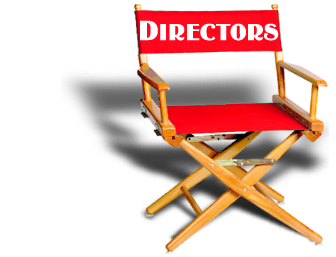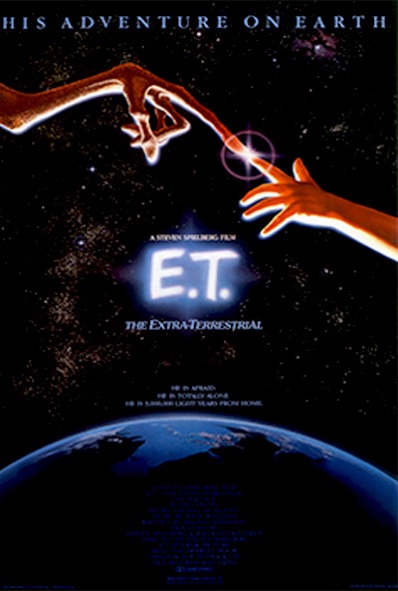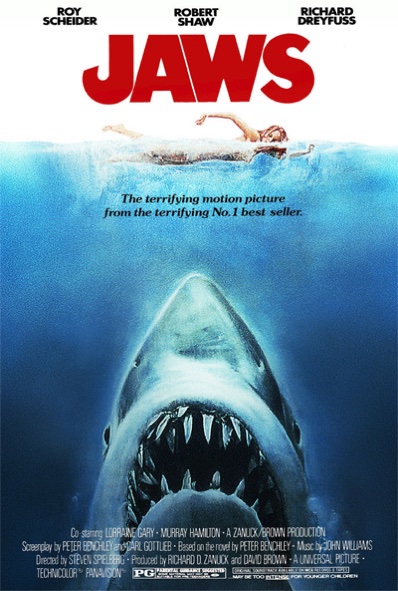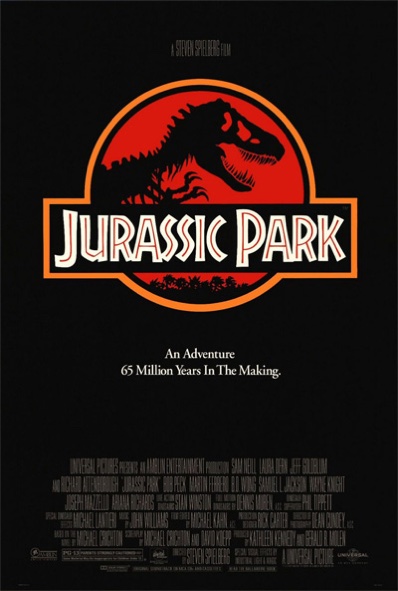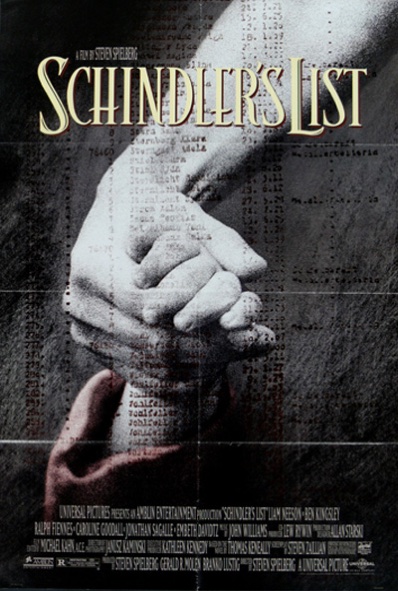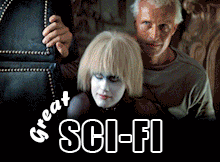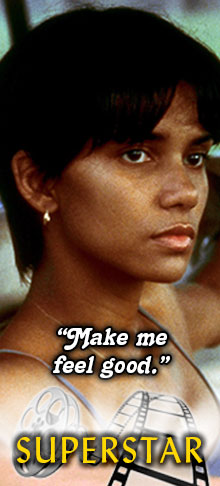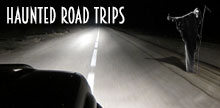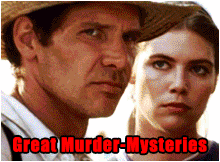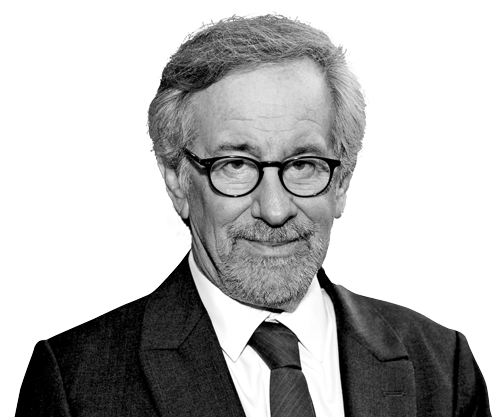
Steven Spielberg
Best known for an unsurpassed body of work in American film, encompassing box-office blockbusters like Jaws (1975), E.T. (1982) and Jurassic Park (1993), and such critically-acclaimed dramas as Schindler’s List (1993) and Saving Private Ryan (1998).
What does a guy have to do? The most commercially successful filmmaker ever (you could argue that he’s been that for over twenty years), Steven Spielberg is criticized for tending toward escapism and sentimentalism and lack of serious artistic intent. This, in spite of three Oscars, the Irving Thalberg Award, the DGA’s Lifetime Achievement Award, and countless Golden Globes and other awards — AND the only director with five films on the American Film Institutes Top 100 of All Time list. His “Schindler’s List” also ranks in their Top Ten of all time.
Though it’s now clear that this is a man who is pursuing his destiny, “dreaming for a living”, that wasn’t clear to USC admissions who turned him down twice. Born in Cincinnati, Ohio in 1946, Spielberg graduated from Saratoga (California) High School and attended Long Beach State, which then had no film program.
He dropped out of there and into Universal Studios, where, the myth goes, he set up shop in an empty office, pretending to be a screenwriter, until he got a job. He started directing TV shows for Universal (Night Gallery, the very first Columbo) at the age of 21. Mentored by studio head Sid Sheinberg, Spielberg directed the brilliant “Duel” for television in 1971; his first feature, “The Sugarland Express”, in 1974, and, still in his twenties, was then given the directorially impossible job of “Jaws“.
Ironically, during the shoot, Spielberg (and many cast and crew) figured this would be the end of his career. Trying to negotiate the wind and the waves and the famous mechanical shark for months, he contemplated doing serious bodily injury to himself in order to be relieved of duty. The shark’s mechanical failures forced him to make several “Hitchcockian” shots, which only hint at what was beneath the waves. The scene of the moving dock was one of many such choices, which made for a more suspenseful film.
Even though “Jaws” was the #1 most successful film at the time, when Spielberg asked Albert Broccoli if he could direct the next Bond film, Broccoli turned him down as not having enough experience.
“Jaws” is given credit for ushering in the age of the summer blockbuster. “E.T.” is given credit for being the first film to use product placement. E.T.s predilection for Reese’s Pieces made its sales soar.
For a guy who had to endure years of Hollywood’s special brand of condescension for not being serious, Spielberg went against his “Spielbergian tendencies” to tell the story of Oskar Schindler and the Holocaust in his masterpiece “Schindler’s List” in 1993, and of the Normandy Invasion in “Saving Private Ryan” in 1998. It’s hard to imagine anything more serious than that.
— Nate Lee
Classic Scenes
Saving Private Ryan
- The D-Day scene has to stand as one of the most horrifically realistic of all battle scenes. The underwater shots, showing the bullets flying through the water and hitting soldiers is uncanny. Tragic ironies abound: a man searching for his severed arm; a soldier survives a bullet to the helmet, takes it off to examine it and marvel at his good luck, and is promptly shot through the skull.
Empire of the Sun
- A young Christian Bale, in a Japanese prison camp, sings a tribute to the kamikaze pilots departing at dawn from the airstrip next to the camp.
Raiders of the Lost Ark
- The opening scene, with the giant stone ball chasing down Harrison Ford, is clearly a classic.
- You’ve got to love the drinking scene in the Himalayas with Karen Allen.
- The very last scene, in the gigantic government warehouse.
Schindler’s List
- Number nine on the AFI’s list of the all-time best, the scenes of brutality make this a film that is necessary for everyone (over 16) to see. Shocking are the scenes of Ralph Fiennes, as prison warden Amon Goeth, randomly shooting prisoners with a rifle from the balcony of his villa. Of particular poignancy, especially juxtaposed to the horrific prison scenes, are the small, quiet scenes between Liam Neeson, as Schindler, and Ben Kingsley, as Itzhak Stern. There are only a handful, but these two master actors load them with silent subtext.
E.T.
- Drew Barrymore makes an unforgettable impression in her first major film role, as the kid sister. Upon meeting the little alien, she and E.T. trade screams. It’s a scream.
The Color Purple
- Whoopi Goldberg, in her starring debut (which earned her an Oscar nomination), spits in the glass of her abusive husband, played by Danny Glover, before she serves it to him.
Spielberg Films in The American Film Institute’s Top 100
The Blockbuster Must-See List
- Saving Private Ryan
- Jurassic Park
- Indiana Jones and the Last Crusade
- War of the Worlds
- Minority Report
The “Smaller” Films
- Duel
- Empire of the Sun
- Catch Me if You Can
- The Terminal
- Poltergeist (as writer, producer)
- The Color Purple
Proof That Even Geniuses Are Fallible
Films Whose Merits You Can Argue if You’re So Inclined
Steven Spielberg’s directing credits include…
| Year | Movie |
|---|---|
| 1968 | Amblin’ |
| 1971 | Duel |
| 1974 | The Sugarland Express |
| 1975 | Jaws |
| 1977 | Close Encounters of the Third Kind |
| 1979 | 1941 |
| 1981 | Raiders of the Lost Ark |
| 1982 | E.T. the Extra-Terrestrial |
| 1985 | Indiana Jones and the Temple of Doom |
| 1985 | The Color Purple |
| 1987 | Empire of the Sun |
| 1989 | Always |
| 1991 | Hook |
| 1993 | Jurassic Park |
| 1993 | Schindler’s List |
| 1997 | The Lost World: Jurassic Park |
| 1997 | Amistad |
| 1998 | Saving Private Ryan |
| 2001 | A.I. Artificial Intelligence |
| 2002 | Minority Report |
| 2002 | Catch Me If You Can |
| 2004 | The Terminal |
| 2005 | War of the Worlds |
| 2005 | Munich |
| 2008 | Indiana Jones and the Kingdom of the Crystal Skull |
| 2011 | The Adventures of Tintin: The Secret of the Unicorn |
| 2011 | War Horse |
| 2012 | Lincoln |
| 2015 | Bridge of Spies |
| 2016 | The BFG |
| 2018 | Ready Player One |
